Miscellaneous Patient Information Guide
Healthcare is an ever-evolving field with a variety of complex topics. From the latest advancements in medical technology to the legal implications of patient care, there is a lot to consider when discussing healthcare. In this section, we will provide a comprehensive overview of miscellaneous topics related to healthcare, from medical coding and reimbursement to patient safety and privacy. By the end of this section, you should have a better understanding of the various components that make up the healthcare system.
Our Most Common Topics
Acupressure
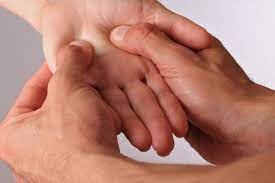
Acupressure is an ancient healing art that has been used for centuries to promote physical, emotional, and spiritual wellbeing. The fingers, palms, elbow, knee or soles are used to massage or apply pressure to specific points on the body. Each point controls a particular organ or body function. Through the application of pressure to specific points on the body, acupressure helps clear blockages in our energy flow and restore balance. With the help of acupressure, we can better understand the mind-body connection, reduce stress, and help heal various ailments. Click to find out more.
Admission and Discharge

Welcome to our section on hospital admission and discharge! We are here to provide excellent medical advice for all of our patients. Hospitals specialize in the admission and discharge of patients who require medical attention. Whether you need to be admitted for a short stay or discharged from the hospital, our team of medical professionals will work to ensure you get the best care possible. We understand how important it is for you to receive the treatment you need, and we are dedicated to providing you with the highest quality of care. Click to find out more.
Alternative treatment

Alternative treatments are becoming increasingly popular as people look for more natural ways to treat their physical and mental ailments. Alternative treatments encompass a wide range of holistic remedies, such as therapeutic massage, acupuncture, aromatherapy, homeopathy and chiropractic treatment. These treatments are based on the belief that restoring balance to our bodies is key to achieving health and wellbeing. They focus on treating the whole person rather than simply looking at the symptoms of a disease or ailment. Many alternative treatments have been proven to be effective in relieving stress and anxiety, reducing pain levels and aiding recovery from injuries or illnesses. Studies have also shown that these treatments can be beneficial in addressing chronic medical conditions such as arthritis or fibromyalgia. With an ever-growing body of evidence supporting the use of alternative therapies, more people than ever are turning to them for relief from their ailments. Click for more information.
BAD BREATH

Bad breath, also known as halitosis, is an unpleasant odor coming from the mouth. It can be caused by a variety of factors such as poor oral hygiene, certain foods and drinks, dry mouth, infection in the mouth or sinuses, medical conditions, and even smoking. The most common cause of bad breath is poor oral hygiene resulting in bacteria buildup on the tongue and other surfaces. Poor dental care may also contribute to bad breath. Other causes include certain medications that create a dry feeling in the mouth or cause an increase in bacteria levels. Eating strongly flavored foods such as garlic and onions can also cause bad breath. People who don’t drink enough water or who have health conditions that limit saliva production can suffer from dry mouth which leads to bad breath. When left untreated, bad breath could be a symptom of a more serious health condition like diabetes or GERD (gastroesophageal reflux disease). Therefore, it is important to visit your dentist regularly and practice good oral hygiene habits to prevent bad breath and maintain overall health. Click for more information.
Blood Test
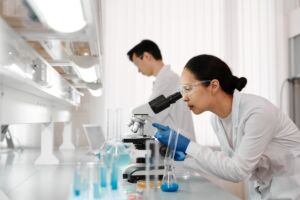
A blood test is a medical procedure that involves taking a sample of blood from a patient to analyze its components. This type of testing allows doctors to investigate the levels of various hormones, proteins, electrolytes, and other substances in the bloodstream. Blood tests are used to detect abnormalities in these substances as well as diagnose and monitor many types of diseases or conditions such as cancer, diabetes, anemia, and liver disease. Blood tests can also be used to measure drug levels and check for evidence of infection or exposure to toxins or allergens. The results from a blood test can provide important information about an individual’s overall health status and help guide treatments. Click for more information.
Blood Transfusion

Blood transfusion is an effective medical procedure that involves transferring blood or blood components from one person to another, either directly or through donated blood products. This practice has been used since the early 20th century and has saved countless lives. Blood transfusions are used to treat various conditions including severe injury or trauma, anemia, bleeding disorders, and cancer. During a transfusion, donor blood is screened for compatibility in order to reduce the risk of complications. Donated blood is also tested for infectious diseases such as HIV and hepatitis. After the process is complete, the recipient receives healthy red blood cells capable of replacing lost or damaged ones. Furthermore, other components of donated blood can help replace lost proteins, replace fluids, and boost overall immunity. With proper screening and testing procedures in place, a successful blood transfusion can be very beneficial for both donors and recipients alike. Click for more information.
COVID-19 Test

COVID-19 testing is a critical part of the public health response to the coronavirus pandemic. It helps to identify those who have been infected so they can receive appropriate care, as well as to limit the spread of COVID-19 by isolating and containing those who are infected. Tests come in various forms, including antigen tests, that detect viral proteins in nose or throat swabs; PCR tests, which use genetic material to detect active infections; and antibody tests, which look for evidence of past infection. Access and accuracy vary widely across countries and regions. Having accurate testing available quickly is key to controlling this global health crisis. Click for more information.
Diagnostic Exams
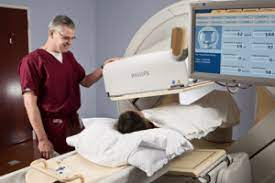
Diagnostic exams are an important tool for assessing and diagnosing a variety of medical conditions. These tests can be used to detect the presence of an illness, determine its severity, and aid in treatment decisions. Diagnostic exams can range from simple blood tests to complex imaging scans such as CT scans or X-rays. The results of these tests allow medical professionals to diagnose a wide array of medical conditions, including cancer, cardiovascular diseases, infectious diseases, neurological disorders, and genetic disorders. Diagnostic exams help physicians make informed decisions about treatments and medications that are best suited for their patients. In addition to helping improve patient outcomes, diagnostic testing also helps reduce the cost of healthcare by providing more accurate diagnoses and reducing the need for further testing and treatment. Click for more information.
Disaster

Disaster can bring significant disruption and destruction to communities, affecting not only physical infrastructure but also the health, security, and economic well-being of those affected. Such events can include natural disasters such as floods, fires, earthquakes, hurricanes and landslides; as well as human-made disasters such as accidental chemical spills, nuclear accidents, terrorist attacks or industrial accidents. Whatever their cause may be, disasters can have severe consequences that leave lasting psychological scars on affected populations in addition to the physical devastation. The impacts of a disaster are often widespread and far-reaching, often resulting in loss of life and property, displacement of persons and communities in need of immediate aid such as food, water and medical supplies. Furthermore, the social and economic implications for a nation after a disaster can be equally devastating and long-lasting. Therefore, it is vital for governments to have comprehensive plans in place to mitigate risk and respond quickly when a disaster strikes in order to save lives and limit damage. Click to find out more.
Doctor’s Visit

A regular doctor’s visit is an important part of staying healthy. It allows your doctor to screen for any health issues and ensure that you are following a healthy lifestyle. During a doctor’s visit, your physician will perform a physical exam which may involve taking your vital signs and measuring height, weight, and body mass index. Your doctor may also order lab tests or imaging studies if needed. Additionally, this is an opportunity for you to ask questions about any health concerns or medications you may be taking. Regular screening for sexually transmitted diseases (STDs) is also important during these appointments. By scheduling regular check-ups with your primary care provider, you can be proactive in maintaining optimal health and catching potential illnesses before they become serious. Click to find out more.
EKG
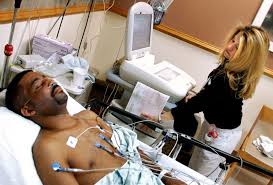
An electrocardiogram (EKG) is a medical test that measures the electrical activity of the heart in order to diagnose and monitor various conditions such as heart attack, arrhythmia, heart disease, and other cardiac issues. An EKG records the electrical waves of the heart over a period of time by placing electrodes on the body and displaying their signal on a computer screen for review. This allows doctors to measure the rate and regularity of electrical impulses in order to detect any abnormalities or irregularities in the heartbeat. In addition to providing an accurate diagnosis, an EKG can also be used to monitor changes in a patient’s condition over time. By keeping track of these changes, doctors can determine if treatment is working or if further interventions may be necessary. Click to find out more.
Elderly Care

As people age, they enter a period of life known as their elderly years. Elderly individuals are generally classified as those over the age of 65. A person who is nearing or has surpassed the life expectancy of the human life cycle. As a group, they face unique physical and mental health challenges that tend to worsen with time. While physical health is often an issue, mental health is just as important in ensuring a high quality of life for the elderly. Mental health issues like depression and anxiety can have serious long-term effects on an individual’s wellbeing if left untreated. Additionally, many elderly individuals experience social isolation due to limited mobility or financial constraints, which can further aggravate mental health issues and reduce their enjoyment of life. Fortunately, there are numerous resources available to support healthy aging including community services, social activities, and technology-assisted programs that can help keep seniors connected with their communities. Click to find out more.
Grief

Grief is an emotion that is experienced in response to a distressing event or situation, such as the death of a loved one. Grief can also be described as the way in which someone reacts to a loss. It is a natural response to loss and can manifest itself in different ways, including sadness, guilt, anger, and physical pain. It is important to express and manage grief in a healthy way by talking to close friends and family, engaging in activities that bring joy and comfort, and seeking professional help, if needed. Click to find out more.
Handwashing

Handwashing is a critical element of personal hygiene and public health. It involves the use of soap and water to cleanse the hands from any dirt, bacteria, or viruses. Handwashing not only helps prevent the spread of infectious diseases but can also protect against allergies and foodborne illnesses. Studies show that proper handwashing can reduce germ transmission by up to 99.9%, significantly reducing one’s risk for infection and illness. Additionally, it takes less than 20 seconds for proper handwashing to take effect, making it an easy and effective way to help maintain good health in both individuals and communities alike. Click to find out more.
Healthcare Providers

Health care providers play an integral role in ensuring people’s health and well-being around the world. These dedicated professionals specialize in a variety of medical disciplines, from general practitioners and nurses to specialists such as surgeons, radiologists, and psychologists. They are responsible for diagnosing illnesses, prescribing treatments, performing medical procedures, and providing preventative care for individuals of all ages. This can include monitoring patients’ vital signs, educating people about health issues, helping them make healthy lifestyle choices, and providing emotional support during difficult times. Health care providers are often seen as pillars of the community who provide a critical service to society. Click to find out more.
lab tests
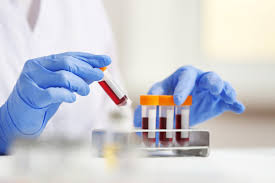
Lab tests are diagnostic procedures that analyze samples such as blood, urine, or tissue to assess various aspects of health. These tests provide valuable information about organ function, detect infections, screen for diseases, and monitor treatment effectiveness. By analyzing specific biomarkers in the samples, healthcare providers can make informed decisions about patient care and treatment plans. Lab tests play a crucial role in diagnosing conditions, tracking progress, and promoting overall health and well-being. Click to find out more.
Medication

Medication is a form of healthcare that involves the administration of drugs or other pharmaceutical products to treat, prevent, or diagnose various illnesses and diseases. Medication is an important tool for managing chronic conditions like asthma, diabetes, and hypertension as well as acute illnesses such as the common cold, flu, and infections. In addition to treating illness and disease, medications can be used for symptom relief in order to improve quality of life. With advances in pharmacology, modern medications have become increasingly specialized with fewer side effects than ever before. It’s important to discuss all options with a doctor when considering taking any medication so that the best course of treatment can be identified. Click to find out more.
Nutrition

The transformation of food into energy. Good nutrition is essential for maintaining a healthy lifestyle. It is important to maintain a balanced diet that includes a variety of wholesome foods from all the major food groups. Eating healthy meals and snacks helps to fuel the body, providing essential vitamins and minerals that are necessary for growth and development. Additionally, eating a healthy diet can help to reduce the risk of developing certain diseases, such as heart disease and diabetes. By taking the time to plan balanced meals and snacks, you can ensure that you and your family get the nutrition they need to stay healthy. Click to find out more.
Patient Rights

What are your rights at the healthcare facility? Patients have the right to expect quality healthcare that meets their individual needs. This includes the right to be informed about their treatment and to be involved in decisions about their care. It also includes the right to access their medical records and information, as well as the right to privacy and confidentiality. Patients also have the right to receive information in a language they understand and to be free from discrimination. These are just some of the important rights that patients have, and it is important to be aware of them in order to ensure that the best possible care is provided. Click for more information.
Vital Signs
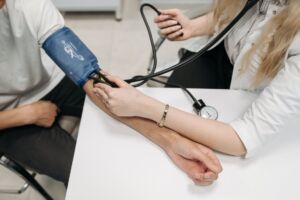
Measure the most basic functions of the body to help detect or monitor medical problems. Vital signs are an innovative medical monitoring system that helps keep track of vital signs such as heart rate, blood pressure, and oxygen levels. The system allows users to track their vital signs over time, compare them to averages, and get an overall picture of their health. Vital signs also offer personalized feedback, helping users to better understand their health and make informed decisions. With vital signs, users can easily and effectively monitor their health and stay in control. Click for more information.

